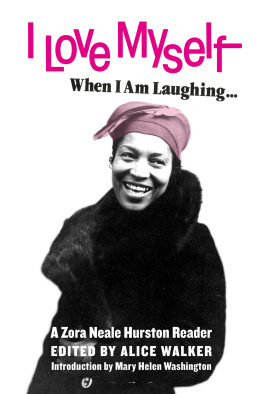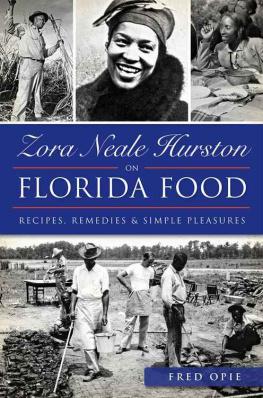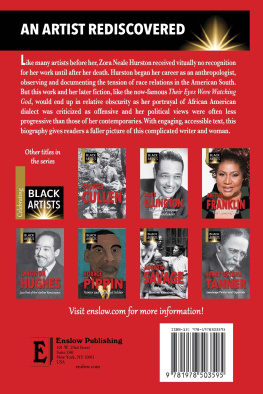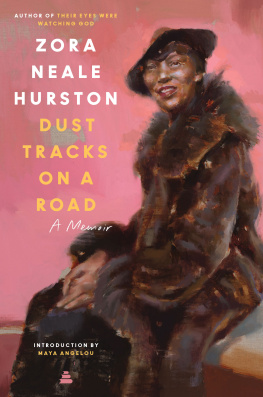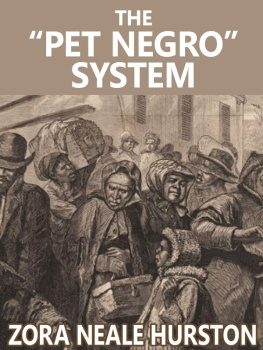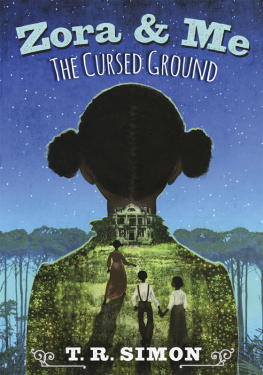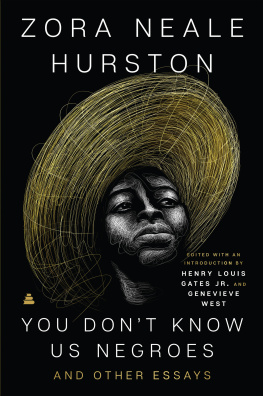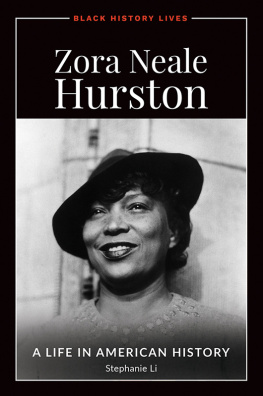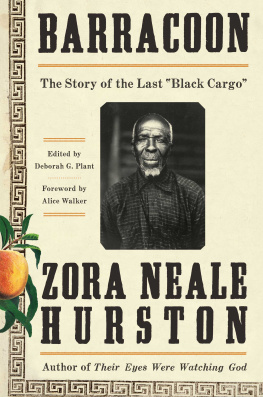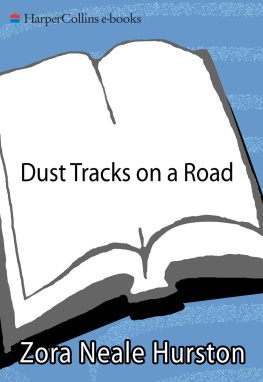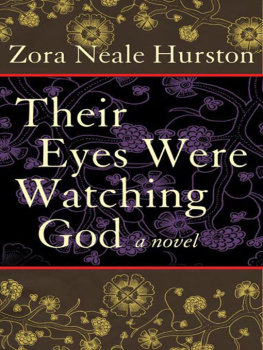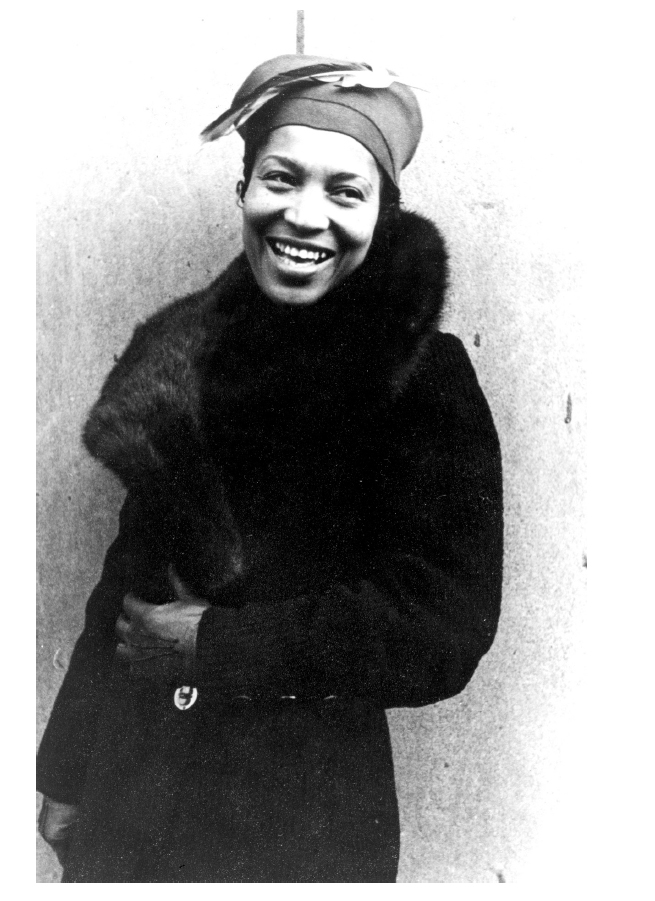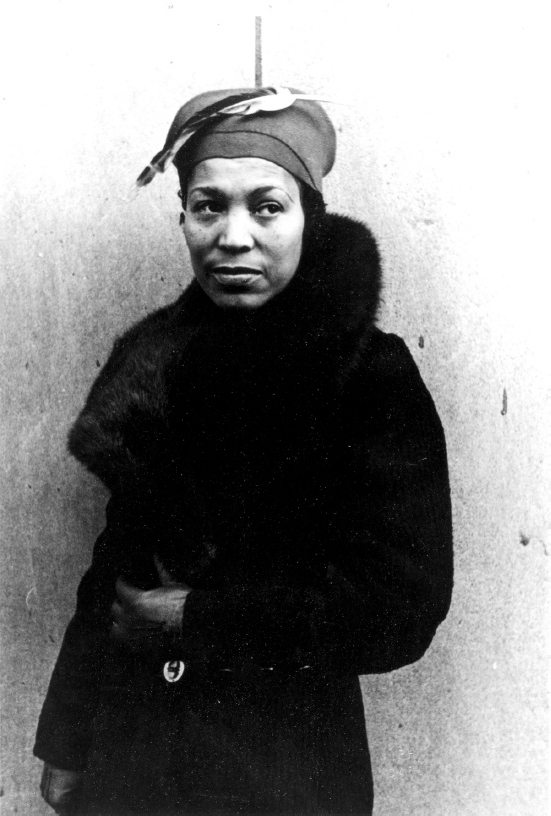
ZORA NEALE HURSTON
I LOVE MYSELF WHEN
I AM LAUGHING
AND THEN AGAIN WHEN I AM
LOOKING MEAN AND IMPRESSIVE
I Love Myself When I Am Laughing
And Then Again When
I Am Looking Mean and Impressive
A Zora Neale Hurston Reader
Edited by Alice Walker
Introduction by Mary Helen Washington

Published in 2020 by the Feminist Press
at the City University of New York
The Graduate Center
365 Fifth Avenue, Suite 5406
New York, NY 10016
feministpress.org
First Feminist Press edition 1979
Dedication and compilation copyright 1979 by Alice Walker
Introduction copyright 1979 by Mary Helen Washington
Note on the Fortieth Anniversary Edition copyright 2020 by Alice Walker
Additional copyright information on page 300.
All rights reserved.
This book was made possible thanks to a grant from the New York State Council on the Arts with the support of Governor Andrew M. Cuomo and the New York State Legislature.
Our work is fueled by the generous support of our community. Thank you to the following people for making this book possible: Elizabeth Cuthrell; Trina S. Frever, PhD; Kathleen Landy; Lynn Povich; Charlotte Sheedy; Julie Scelfo; and Jamia Wilson, in memory of Willa Alfreda Campbell-Wilson.
No part of this book may be reproduced, used, or stored in any information retrieval system or transmitted in any form or by any means, electronic, mechanical, photocopying, recording, or otherwise, without prior written permission from the Feminist Press at the City University of New York, except in the case of brief quotations embodied in critical articles and reviews.
First printing January 2020
Cover design by Susan Trowbridge
Text design by Drew Stevens
Library of Congress Cataloging-in-Publication Data
Names: Hurston, Zora Neale, author. | Walker, Alice, 1944- editor. | Washington, Mary Helen, author of introduction.
Title: I love myself when I am laughing and then again when I am looking mean and impressive : a Zora Neale Hurston reader / edited by Alice Walker ; introduction by Mary Helen Washington.
Description: New York City : Feminist Press at the City University of New York, 2020. | Includes bibliographical references.
Identifiers: LCCN 2019046616 (print) | LCCN 2019046617 (ebook) | ISBN 9781936932733 (paperback) | ISBN 9781936932740 (ebook)
Subjects: LCSH: African Americans--Literary collections.
Classification: LCC PS3515.U789 A6 2020 (print) | LCC PS3515.U789 (ebook) | DDC 813/.52--dc23
LC record available at https://lccn.loc.gov/2019046616
LC ebook record available at https://lccn.loc.gov/2019046617
PRINTED IN THE UNITED STATES OF AMERICA
I love myself when I am laughing.
And then again when I am looking
mean and impressive.
Zora Neale Hurston, in a letter to
Carl Van Vechten, December 10, 1934,
referring to a series of photographs
he had taken of her.
Contents
BY ALICE WALKER
BY ALICE WALKER
BY MARY HELEN WASHINGTON
BY ALICE WALKER
NOTE ON THE FORTIETH ANNIVERSARY EDITION
BY ALICE WALKER
Zora Neale Hurston:
More Than We Knew
WORDS CANNOT EXPRESS my celebratory joy at what we, collectively, have accomplished these past forty years: the reestablishment of Zora Neale Hurston as a writer who witnessed, enjoyed, and loved us. The reality of our successa triumph that does not ask whether its effect will last forever, because we realize nothing truly doesstill signals to us that we must continue in this same collective way to reclaim whatever we can, whatever is left, of the soul-sustaining world.
Zora was of that world. A world that, from endless time, has supported us; a world that is rapidly disappearing. She was a writer, yes, a performer and creator of skits, songs, and plays, yes; but she was also a seeker and dreamer who insistently pursued her own spirit-driven adventure as she explored and reveled in an intense and apparently innate curiosity and love of Nature, the Universe, and its human-embellished mysteries. A love expressed in her numerous attempts to learn the shamanic practices of other peoplesnotably in Haiti and Honduras, but also in Florida and wherever else she heard of a people or a tribe who practiced means of connecting the known physical world with the Mysterious and the Unknown.
Though this curiosity carried the label, in her case, anthropology, a close reading of her work reveals a soul inherently skeptical about the limited scope of what is offered to the masses as ordinary reality.
The reclamation of Zora Neale Hurston, the genuine enjoyment and acceptance of her gifts, and especially of Mules and Men and Their Eyes Were Watching God, is healing news for the peoples of Earth because it means that reviving memory of, and connection to, the folk spirit of Earths peoples is not impossible for us. We can allow our ancestors to roam freely in consciousness, and remain or become an internal support for us and for all coming generations. We have, across the planet, missed this folk spirit and our ancestral tribes: their laughter, dreams, wit, and scandalous tales, no less than their wisdom, more than we knew.
DEDICATION BY ALICE WALKER
On Refusing to Be Humbled
By Second Place in a
Contest You Did Not Design:
A Tradition by Now
A FRIEND OF MINE called one day to tell me that she and another woman had been discussing Zora Neale Hurston and had decided they wouldnt have liked her. They wouldnt have liked the waywhen her play Color Struck! won second prize in a literary contest at the beginning of her careerHurston walked into a room full of her competitors, flung her scarf dramatically over her shoulder, and yelled COLOR .. R . R STRUCK .. K . K! at the top of her voice.
Apparently it isnt easy to like a person who is not humbled by second place.
Zora Neale Hurston was outrageousit appears by nature. She was quite capable of saying, writing, or doing things different from what one might have wished. Because she recognized the contradictions and complexity of her own personality, Robert Hemenway, her biographer, writes that Hurston came to delight in the chaos she sometimes left behind.
Yet for all her contrariness, her chaos, her ability to stir up dislike that is as strong today as it was fifty years ago, many of us love Zora Neale Hurston.
We do not love her for her lack of modesty (that tends to amuse us: an assertive black person during Hurstons time was considered an anomaly); we do not love her for her unpredictable and occasionally weird politics (they tend to confuse us); we do not, certainly, applaud many of the mad things she is alleged to have said and sometimes actually did say; we do not even claim never to dislike her. In reading through the thirty-odd-year span of her writing, most of us, I imagine, find her alternately winning and appalling, but rarely dull, which is worth a lot. We love Zora Neale Hurston for her work, first, and then again (as she and all Eatonville would say), we love her for herself. For the humor and courage with which she encountered a life she infrequently designed, for her absolute disinterest in becoming either white or bourgeois, and for her
Next page
